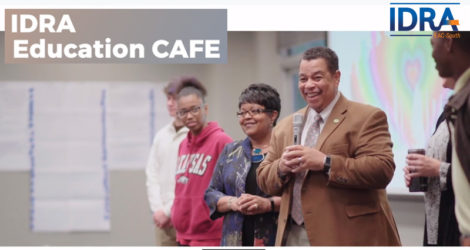• Ian Warner • Learning Goes On • June 12, 2020 •
The COVID-19 pandemic and at-home-schooling caused families to engage with their students’ education in new ways. At the same time, most schools had to pause their planned family engagement activities despite their heightened need to connect with families to support student learning.
In late May, the IDRA EAC-South held a virtual meeting with education agency leaders representing five states – Alabama, Arkansas, Florida, South Carolina and Tennessee – for a conversation about family engagement strategies during the pandemic.
We shared resources and strategies in equipping families as leaders and engaged members of the education system. We discussed resources, including IDRA’s Education CAFE model, as well as professional development and training for school leaders and local and state education agencies.
IDRA also presented preliminary findings from our survey of families, students, educators, and communities about their experiences with distance learning due to COVID-19. School closures created a myriad of new challenges that schools must address, including reaching disengaged students, serving families and students without internet access and online coursework, financial and economic stress upon parents and students, and providing important documents and resources in multiple languages.
The virtual convening concluded with commitments to ongoing communication and mutual learning to help state education agencies create innovative solutions to challenges that developed through the COVID-19 pandemic.


[©2020, IDRA. This policy update originally appeared in IDRA’s Learning Goes On eNews in English and Spanish by the Intercultural Development Research Association. Permission to reproduce this article is granted provided the article is reprinted in its entirety and proper credit is given to IDRA and the author.]


